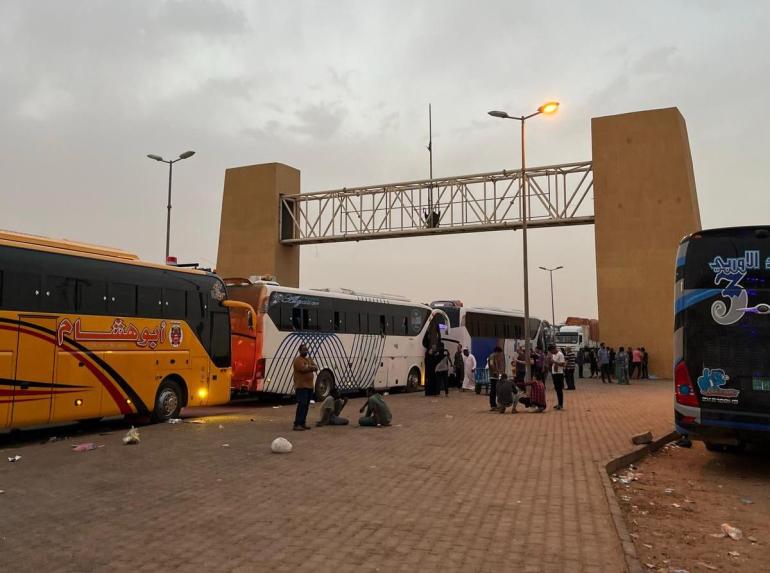Sudanese face ‘shocking’ delays, no aid at Egypt border
After perilous journey to the border, people escaping war wait for days without any humanitarian assistance before crossing into Egypt.
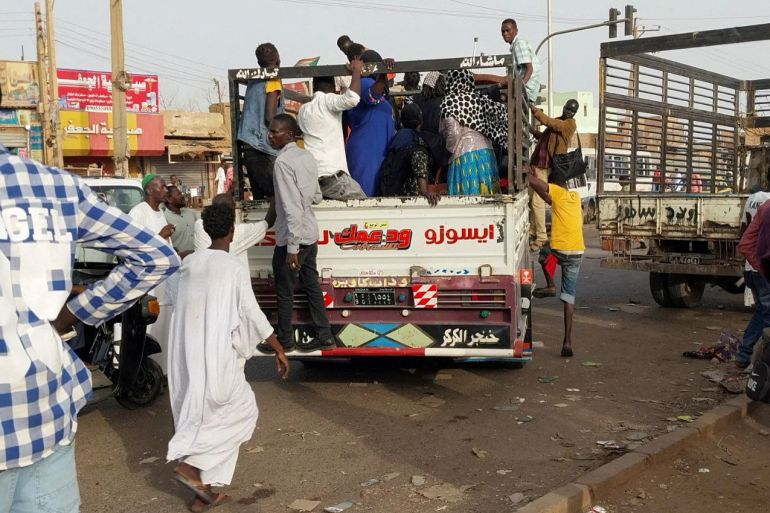
Long lines of 50-person buses queue in Argeen, one of two main crossings along the Egyptian-Sudanese border, as they carry thousands of people escaping fighting in Sudan’s capital, Khartoum, to neighbouring countries.
Mounds of luggage pile up next to crowds of hungry and exhausted people, including children, chronically ill people, and elderly men and women. They wait in the scorching April heat without food, water, sanitary toilets or access to basic healthcare before crossing into Egypt.
Keep reading
list of 4 itemsRohingya, Yemeni and Syrian refugees plead for help in Sudan
Shifting alliances in Sudan’s Darfur as new civil war fears rise
Middle East round-up: Civilians flee Sudan
Many of those waiting have been traumatised by heavy artillery and air strikes that hit their homes or struck nearby after battles broke out between the Sudanese army and the powerful paramilitary Rapid Support Forces (RSF) on April 15.
The fighting has killed at least 460 people, injured more than 4,000 and shut down 60 percent of the capital city’s hospitals, according to World Health Organization (WHO) estimates.
Those who cannot afford the extortionate costs of the journey to the borders of neighbouring countries or are unwilling to face the uncertainty it brings remain trapped in Khartoum and other cities where food, water and fuel are scarce.
Those who left have told Al Jazeera that instead of finding respite at the borders, they are met with long delays to get their visas processed and a lack of international aid.
“The situation is simply shocking, and my main concern is that it’s getting worse by the day,” says Yousra Abdelmoneim, a 27-year-old Sudanese-Egyptian accountant who crossed into Egypt after a three-day journey from Khartoum.
“There are no basic services or healthcare, no international aid organisations, and no access to free food or water,” she says.
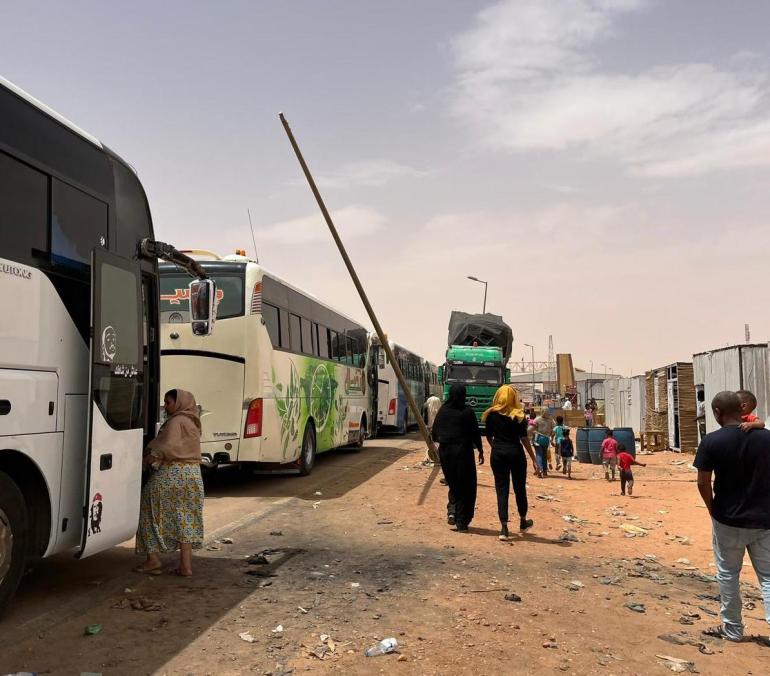
No humanitarian aid presence
Abdelmoneim says she crossed into Egypt with family members after waiting 24 hours at the border and paying hundreds of dollars to reach Wadi Karkar, a bus station near Aswan in southern Egypt.
Like many who spoke to Al Jazeera, she says she saw not a single international aid organisation on the Sudanese side of the border and only an Egyptian Red Crescent mobile health clinic on the other.
“There was nothing on the Sudanese side. Just a small straw shed and a place selling some sandwiches. No services, not even water being distributed,” Abdelmoneim says.
On the Egyptian side, the situation was not much better, but Egypt’s health ministry announced on Friday that it be stepping in to provide medical services the border crossing for everyone arriving from Sudan.
“Just a small cafeteria selling tea, water, but only if you have Egyptian currency,” says Abdelmoniem, recounting that there were “no other international NGOs, no UN trucks nor personnel, no humanitarian organisation giving out food or urgent medical care.”
Abdolmoniem’s concerns were shared by a Sudanese man fleeing the conflict. The international aid worker who did not wish to be named for security reasons says he was also “shocked not to see any UN agencies at the border”, adding that people even had to pay 2,000 Sudanese pounds [about $4] for a straw bed while waiting to cross the border.
There was no one to provide medical care to the many people arriving exhausted, depleted and dehydrated while others were in need of life-saving medicines or urgent medical care for chorionic illnesses.
“When the Ukraine war broke out, when the Tigray crisis happened, everyone was on the ground, but this time, there’s no one,” the aid worker-turned-refugee tells Al Jazeera from Aswan, where he arrived on Wednesday after paying $200 for a bus ticket and waiting with about 30,000 other people for nearly four days to clear the crossing. “Where are the international aid organisations?”
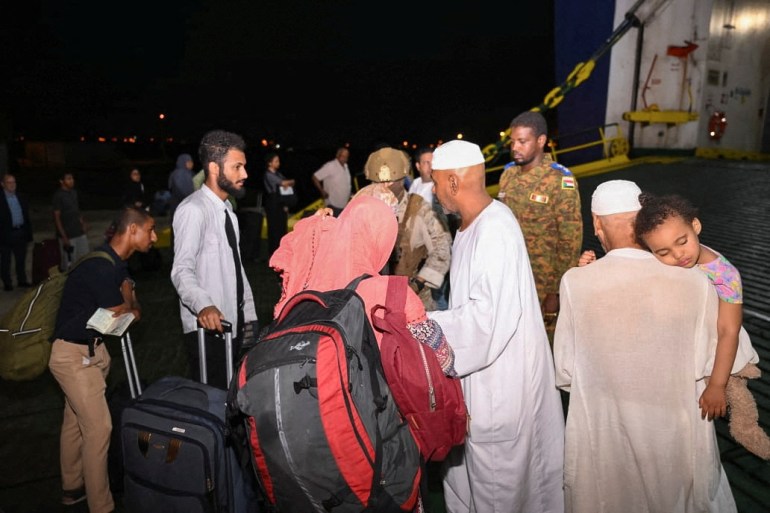
Long delays
After long and difficult journeys, people reaching the Egyptian side of the border say they were divided into groups of Egyptians and foreigners and told to queue up at two windows served by one staff member each. After submitting their passports and forms, they waited some more for their paperwork to be processed.
“It was a very haphazard process with no logical order, with no distinction as to whether you were Egyptian or a foreigner,” Abdelmoneim says. “Many people around us had been waiting for two days without their names being called out.”
Unlike the rest of their group, two of her male cousins did not hold an Egyptian passport or a valid visa and were denied entry at Argeen. They were told to go to Wadi Halfa for their paperwork to be processed, but five days later, they remain stuck there, she says.
For Abdelmoneim, the nightmare continued every step of the way. After they were allowed entry into Egypt, the group was told that like many other buses, theirs did not have the correct paperwork. They were forced to disembark and waited another five hours until they found another vehicle to help them cross into Egypt because they were not permitted to do so on foot, Abdelmoneim says.
“We paid $200 each to reach the border, and another $150 just to get to Aswan,” the accountant says. “Reaching safety is a privilege that only few can afford.”
Safa Kazzam, a 38-year-old Sudanese-Swedish mother, who crossed the border on Saturday says many of her family members have been stuck in Argeen for three days with no sign of when they will be able to clear the crossing.
“To be met by this after such a long and difficult journey is insane,” Kazzam says.
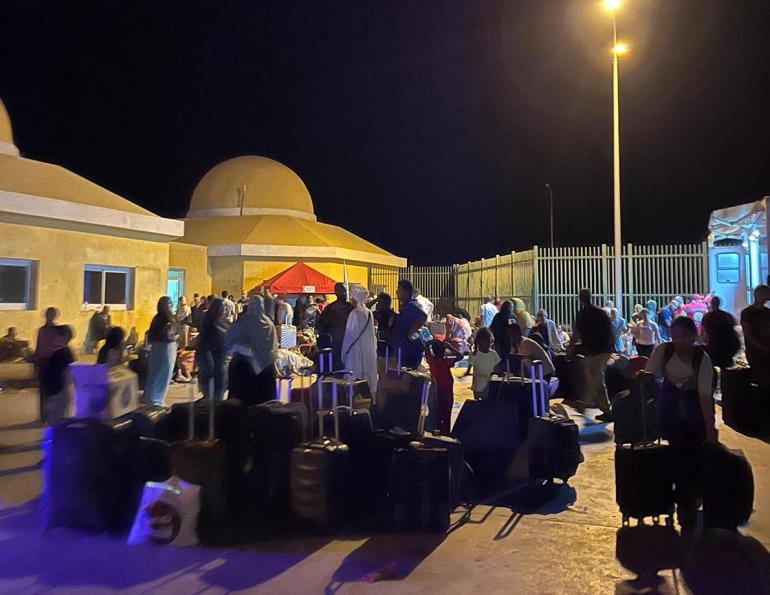
‘Lack of UN presence’
Olga Sarrado, a spokesperson at the UN’s refugee agency (UNHCR), told Al Jazeera on Wednesday that it was expecting 270,000 Sudanese refugees to cross into Chad and South Sudan, including South Sudanese returning home, but did not have projections for Egypt.
Egyptian media outlets have reported that more than 10,000 people had crossed through the land crossings of Qastal and Argeen from April 21 to Tuesday. According to witnesses, the number of people reaching the Egyptian border has been much higher.
Unconfirmed reports circulated on Thursday that the Egyptian authorities had granted organisations, including UN agencies, permission to visit the border with Sudan.
While human rights organisations and activists raised the alarm on what they describe as a slow and inefficient humanitarian response on the Sudanese border, it remained unclear why international aid groups were not there. Al Jazeera had not received a response from the UNHCR at the time of publishing.
“We are hearing that the UN has not been providing support at the border, which has compounded the problem for the people fleeing Sudan,” says Abdullahi Hassan, Sudan and Somalia researcher at Amnesty International.
Sherine Tadros, deputy director of advocacy and UN representative for Amnesty, called out the apparent lack of provisions at the border crossings, explaining that there remains no food, water or basic services such as places to sit, sleep, shower or use the toilet.
“These are people who left everything behind, their homes and belongings, … their entire lives to make this 1,000km [620-mile] journey from Khartoum to the border,” Tadros says. “At the very least they deserve to be treated with compassion and dignity as they wait to enter Egypt, and they should be given safe passage.”
